Ideas and Priorities for NATO’s Future – Presenting the NATO Shadow Strategic Concept
- Dato
- Tid
- 16:00 -
- Sted
- Online
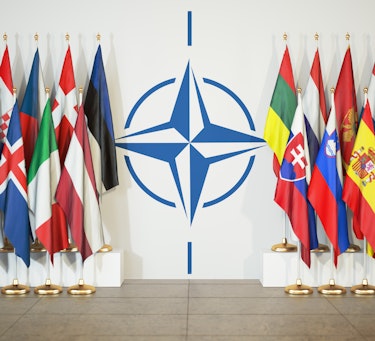
Join us for a digital presentation of the NATO Shadow Strategic Concept.
Register for the event here: https://sites-gmf.vuturevx.com...
Read the TAG NATO Shadow Strategic Concept here.
Since the publication of NATO’s 2010 Strategic Concept “Active Engagement, Modern Defence,” the global security landscape has drastically changed. In the face of Russia’s military build-up on NATO’s eastern borders, increased tensions in the Indo-Pacific, and advances in military technology, the time is ripe for NATO to update its Strategic Concept to reflect the changing security environment, equip the alliance for new challenges, and guide its future political and military development.
Preceding the publication of NATO’s new strategic concept, The Alphen Group, a network of leading security policy experts chaired by British strategist Prof. Julian Lindley-French is launching its own NATO Shadow Strategic Concept. It serves as a model for the official NATO Strategic Concept to be released in June 2022 and its ideas, priorities, and creative impulses are designed to help NATO meet the challenges of the future.
Please join The German Marshall Fund of the United States (GMF), The Canadian Global Affairs Institute, and The Norwegian Atlantic Committee for the public launch event of the NATO Shadow Strategic Concept. It will feature a conversation with two of the report’s authors, Ambassador Alexander Vershbow and Julian Lindley-French, as well as defense expert Nico Lange and actively engage audience questions about the way forward for NATO in 2022 and beyond.
Speakers
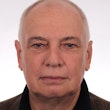
Julian Lindley-French
Julian Lindley-French is Chairman of The Alphen Group (TAG) https://thealphengroup.home.blog, Senior Fellow at the Institute for Statecraft in London, Director of Europa Analytica, Fellow of the Canadian Global Affairs Institute and a member of the US-German Loisach Group of the George C. Marshall Center and the Munich Security Conference. He has published twelve books and many articles and reports. Lindley-French was educated at the University of Oxford, UEA and at the European University Institute in Florence, Italy. He holds three advanced degrees, has held three professorial chairs (Professor of Military Art and Science and Eisenhower Professor of Defence Strategy, Netherlands Defence Academy and Special Professor of Strategic Studies, Leiden University) and senior policy and project positions for the EU, NATO and the UN.
In March 2021, Lindley-French published a major new book entitled Future War and the Defence of Europe (Oxford University Press) with US General (Ret.) John R. Allen and US Lieutenant General (Ret.) Frederick (Ben) Hodges. https://global.oup.com/academic/product/future-war-and-the-defence-of-europe-9780198855835?cc=nl&lang=en& . In February 2022, Franck Kosmos Press will publish a German language edition.
In March 2021, Lindley-French published a report for CEPA in Washington entitled, Military Mobility: Moving Mountains for European Defence https://cepa.org/the-cepa-military-mobility-project-moving-mountains-for-europes-defense/. In April 2021, he completed a major report for the European Parliament entitled Honest Broker? The EU, Strategic Autonomy and Security in the Future Arctic, whilst in September he completed another entitled The Common Security and Defence Policy (CSDP) and the Eastern Partnership.
Lindley-French was Vice-President of the Atlantic Treaty Association in Brussels and Distinguished Visiting Research Fellow of the National Defense University in Washington. In 2015, he was made an Honorary Member of the Association of Anciens of the NATO Defence College in Rome. He also served General Sir David Richards and General Sir Nicholas Houghton on the UK Chief of Defence Staff’s Strategic Advisory Group and was Head of the Commander’s Initiative Group (CIG) for Lieutenant-General Sir Richard Shirreff, COMARRC.
In November 2017, he co-published the Future Tasks of the Adapted Alliance
(The GLOBSEC NATO Adaptation Reports). The final report was presented to the NATO Secretary-General and can be downloaded at https://www.globsec.org/news/globsec-nato-adaptation-initiative-final-report/ In October 2022, he will direct The Future War Conference at Wilton Park and in 2024 he will publish Future War and the Defense of America.
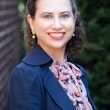
Kimberly Kagan
Dr. Kimberly Kagan is the founder and president of the Institute for the Study of War, a nonprofit and nonpartisan policy research organization focused on US national security. She is a military historian who has published three books and taught at the US Military Academy at West Point, Yale, Georgetown, and American University. Kimberly conducted strategic reviews for theater commanders in Iraq and Afghanistan from 2007 to 2010. She received a public service award from the Chairman of the Joint Chiefs of Staff for her seventeen months of service as a volunteer in Kabul from 2010 to 2012 for the commanders of the International Security Assistance Force, General David H. Petraeus and subsequently General John Allen. She served on the Congressionally appointed bipartisan Syria Study Group until that group issued its final analysis and recommendations report in 2019. She is currently a member of the advisory board of the Vandenberg Coalition.
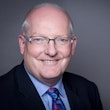
Thomas Kleine-Brockhoff
Thomas Kleine-Brockhoff is vice president at the German Marshall Fund of the United States (GMF) where he oversees the organization’s activities in Germany. Prior to joining GMF, he served as an advisor to Joachim Gauck, the president of Germany. From 2013-17, he oversaw policy planning and speechwriting for the president.
Before joining the President’s staff in Berlin, Kleine-Brockhoff spent 12 years in Washington, DC, including a prior six-year stint at GMF where he led work about the implications of the European financial crisis. A member of GMF’s senior management team since 2007, Kleine-Brockhoff was responsible for strategic projects and, until 2011, oversaw GMF policy programs and globalization projects.
Before arriving at GMF, Kleine-Brockhoff served as the Washington bureau chief of DIE ZEIT, Germany’s intellectual weekly.
On September 23, 2019, he launched his book, "The World Needs the West – A Fresh Start for a Liberal Order."
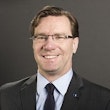
Nico Lange
Nico Lange has been serving as Federal Minister of Defence Annegret Kramp-Karrenbauer’s chief of executive staff since 2019. From 2018-2019, Lange was Deputy Federal Executive Director of the CDU and simultaneously headed the Strategic Planning and International Policy Staff Office. Previously, he was Plenipotentiary for Innovation and Strategy of the Saarland state government. He headed the Konrad Adenauer Foundation's U.S. Foreign Office in Washington, D.C., in 2017-2018 and was the Konrad Adenauer Foundation's Deputy Chief of Policy and Advisory Services in 2012-2017, where he led the Domestic Policy Team and a working group on the future of popular parties. From 2006-2012, he headed the Konrad Adenauer Foundation's Ukraine office in Kyiv. Prior to that, he taught and conducted research in St. Petersburg, Russia, on a Robert Bosch Stiftung fellowship. Lange holds a master's degree in political science, communication science and computer science. He was a soldier in the German Armed Forces from 1993-2000.
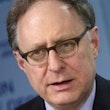
Alexander Vershbow
Alexander Vershbow is a Distinguished Fellow at the Atlantic Council in Washington, D.C and a member of the Alphen Group. He was Deputy Secretary General of NATO from 2012 to 2016, the first American to hold that position. He was directly involved in shaping the Alliance’s response to Russia’s aggression against Ukraine, adapting NATO’s deterrence posture, and deepening NATO’s partnerships across the globe. A career diplomat since 1977, Vershbow served as U.S. Assistant Secretary of Defense for International Security Affairs (2009-2012), U.S. Ambassador to the Republic of Korea (2005-2008), U.S. Ambassador to Russia (2001-2005) and U.S. Ambassador to NATO (1998-2001). He also held numerous senior positions in Washington, including Special Assistant to the President for European Affairs at the National Security Council (1994-97) and State Department Director of Soviet Union Affairs (1988-91). Vershbow received a B.A. in Russian and East European Studies from Yale University and a Master’s in International Relations from Columbia University.
https://global.upenn.edu/perryworldhouse/person/alexander-vershbow